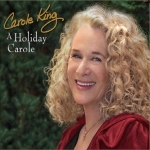Help Protect the Northern Rockies Ecosystem

The Northern Rockies ecosystem overlaps five states-Idaho, Montana, Oregon, Washington and Wyoming-but all Americans own the affected land, Many Americans don't know that their tax dollars are being spent to subsidize activities that are harmful to the land, water, and wildlife in the Northern Rockies ecosystem. Once NREPA becomes law, we'll have some names to suggest of elected officials to have mountains named after them. But right now those mountains, water, and wildlife need your help.
In a world where a single vote can decide an election, your voice matters, and the Northern Rockies Ecosystem Protection Act (NREPA) needs your voice! If you have friends or relatives living in one or more of the five NREPA states which include Idaho, Montana, Oregon, Washington and Wyoming, please forward an email to them to ask them to contact their U.S. Senators and U.S. Representative and urge them to vote for H.R. 3334, the Northern Rockies Ecosystem Protection Act (NREPA). Your voice will help overcome the cacophony of fear. You are one of the smart people who care enough to make the world a better place. Let your voice restore harmony by taking action to save the Northern Rockies!
Thank you very much.
Below are links for U.S. Senators and a link to write to your U.S House Representative. Please review their contact page carefully as some prefer phone calls, faxes or regular mail as opposed to email and vice versa depending upon the urgency of the matter.
Idaho: Senator Mike Crapo
Idaho :Senator Jim Risch
Montana: Senator Max Baucus
Montana: Senator Jon Tester
Oregon: Senator Ron Wyden
Oregon: Senator Jeff Merkley
Washington: Senator Maria Cantwell
Washington: Senator Patty Murray
Wyoming: Senator John Barrasso
Wyoming: Senator Michael Enzi
To write your U.S. House representative go to: Write your Representative
You can find out more about NREPA on the Alliance for the Wild Rockies website. You can read the text of NREPA (introduced as H.R. 3334 in the 112th Congress, November 2011) at the Library of Congress website.


